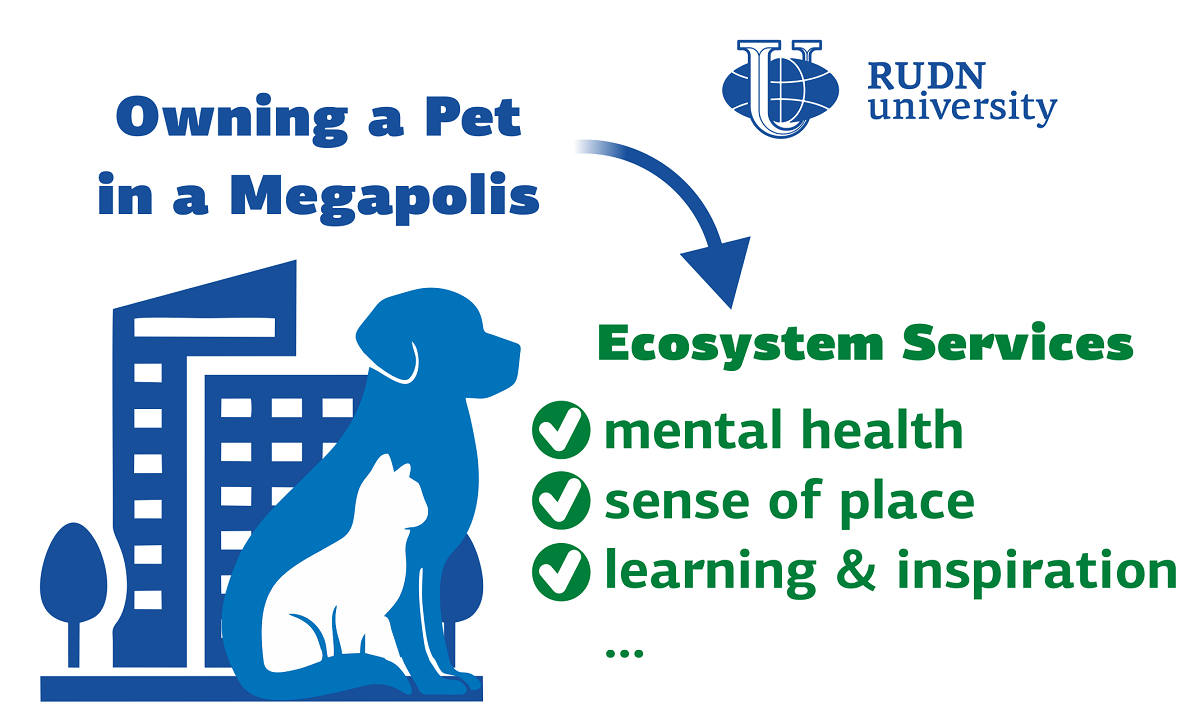RUDN University Scientists Fit Pets in the Classification of Ecosystem Services
Ecosystem services (varied benefits to humans provided by nature) play an important role in urban planning and management. These include, for example, energy sources, fresh water, a recreational resource (the opportunity to walk and relax in natural environment). There are several generally accepted classifications of ecosystem services. However, none of them explicitly considers pets. Therefore, the interests of pet owners may lack in urban planning and management. RUDN University scientists determined the ecosystem services that people receive from pets and compared them with two classifications: CICES (Common International Classification of Ecosystem Services) and NCP (Nature’s contributions to people).
“In the urban environment, pets influence peoples’ way of life and well-being. However, in both the Common International Classification of Ecosystem Services (CICES) as well as in the nature’s contributions to people (NCP) classification, pets such as cats and dogs are not explicitly considered, whereas both frameworks allow for depicting the benefits derived from domestic animals such as livestock. This study aims at contributing to this knowledge gap”, said Victor Matasov, Ph.D., the researcher at RUDN University’s Smart Urban Nature Lab.
Scientists conducted a survey to determine why people in the metropolis have pets and what benefits they get from it. The received answers were then translated into the existing classifications of ecosystem services.
The online survey was conducted in March-April 2020 among residents of Moscow. The authors received 229 responses. The survey consisted of 17 questions divided into three blocks: living with a pet, the availability of urban infrastructure and general information about the respondent. As a result, they identified 12 categories of reasons for owning a pet and found the corresponding sections in CICES and NCP. For example, several reasons at once: not to feel alone, for beauty/to admire, to shelter, correspond to class 3.1.1.2 in CICES “Characteristics of living systems that enable education and training”. And such practical functions as hunting cats for mice — class 2.2.3.1. “Pest control (including invasive species)”.
“Considering an increase in pet owners, the interests and needs of this distinct stakeholder group need to be taken into account in urban planning and management. Pets’ integration into classifications and thus assessments of the urban ES can be a crucial step towards achieving this goal”, said Anastasia Konstantinova, Ph.D., the researcher at RUDN University’s Smart Urban Nature Lab.
The results are published in the journal Sustainability.
Products derived from microalgae represent a cutting-edge development in the field of bioeconomy. The potential of this biological resource was discussed at the international research seminar “Foundations for a Green Sustainable Energy”, part of the BRICS Network University’s thematic group on “Energy”. The event was organized by the Institute of Ecology at RUDN University.
Ambassadors of Russian education and science met at a conference in RUDN University to discuss how they can increase the visibility of Russian universities and research organizations in the world, and attract more international students in Russia.
The international scientific seminar hosted by RUDN Institute of Ecology “Experience of participation in student organizations as a way to form career skills” united scholarship recipients of the International Student Mobility Awards 2024 and Open Doors, along with members of the scientific student society “GreenLab” and the professional student association “Kostyor (Bonfire)” shared their projects focused on environmental protection.
